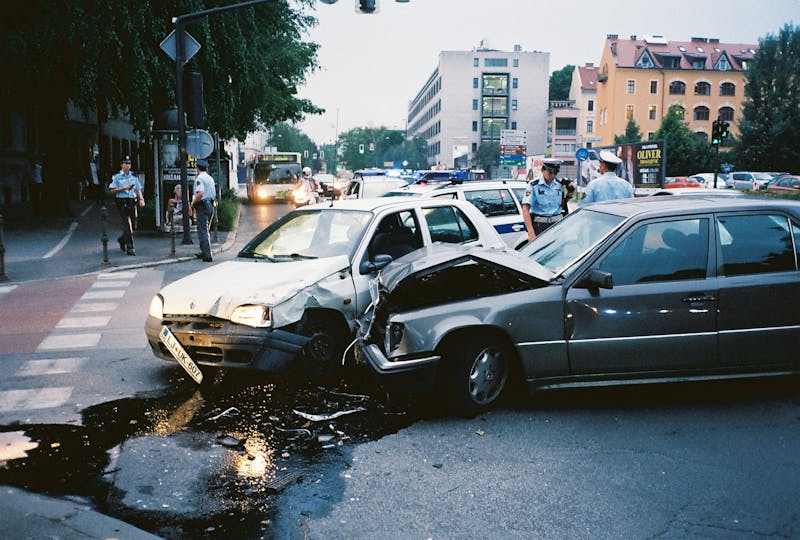It will happen over 6 million times this year on the interstates and highways that crisscross the United States: car accidents. Some of those 6 million will be minor dents and dings. But others will be serious collisions resulting in catastrophic injuries to the vehicle occupants.
If you are involved in crash – minor or serious – take note of the steps to take after a car accident to protect yourself and your legal rights.
1) Remain On Scene. Never consider fleeing the scene of an accident. Even if no damage is visibly present, remain on location and continue to the next step.
2) Steer Over. Unless your vehicle is disabled or unsafe to move, relocate your automobile away from the main lanes. Cars passing close to the scene have hit many drivers after an accident. If your car does not impede traffic flow, keep it at the exact location of the accident.
3) Safety at the Scene. Alert other drivers that you are stopped. You can normally do this by turning on your emergency flashers, unless the flashers are damaged in the wreck. Commercial trucks with an emergency kit will often have road flares or fluorescent traffic cones. Use all appropriate means available will help signal other drivers to slow down when passing. If you are in a dangerous place, move to safety before exposing yourself to danger from other vehicles or passing traffic.
4) Call The Police. Some insurance companies will require a police report. If anyone is injured, police can dispatch emergency medical teams to the location. Even without injury, police presence is often helpful to sort out the aftermath of an auto accident.
5) Make Notes and Take Pictures. Let the police officer know exactly what happened. Include any details surrounding the incident. Don’t speculate or guess, tell only the facts. This is a good time to take pictures of your car and the accident scene. Phone cameras can do the job. If you are able to do so, write down notes on anything you can remember about the accident.
6) “Are you Injured?” When the officer asks, even if you don’t have any obvious injuries, tell him or her that you don’t know unless it is obvious to you that you are injured. Injuries from auto accidents won’t always reveal themselves right away. Neck and back pain can often be delayed, with pain setting in hours or even days after the crash.
7) Exchange Information. If you are physically able, gather information from all parties involved in the accident, including bystanders. Anyone who witnessed the crash can be helpful in building a case against the offending party. Don’t rely solely on the responding officer to obtain evidence. Write down contact information such as names, phone numbers, addresses, etc.
8) Notify Insurance. Report the accident to your insurance company as soon as you can. Find out what insurance will cover and if your policy has personal injury protection or medical payments coverage. This type of coverage is primarily for accident-related bills and may be available to all occupants of the vehicle depending on your coverage.
9) Seek Medical Attention. Listen to your body. Any soreness or change in your body following an accident needs to be examined by your physician. Injuries from car accidents can be delayed by hours or days. If you ever lost consciousness or became hazy, this could be a sign of a concussion or other head trauma. Seek medical attention right away, even if you don’t feel “injured” if you lost consciousness or became “hazy” immediately after a car wreck. When it comes to your health and safety, it is better to err on the side of caution and get checked out by an experienced medical professional as soon as possible.
10) Keep A File. McCraw Law Group is here to help you after an accident and demand that you receive proper compensation for injury, loss of property, or lost wages. Keep all the information you have from the accident – from police reports to insurance claims. All of this information helps us build your case and fight for you.
If you’ve been hurt in a wreck, contact the McKinney car accident attorneys at McCraw Law Group today for a free case evaluation.


